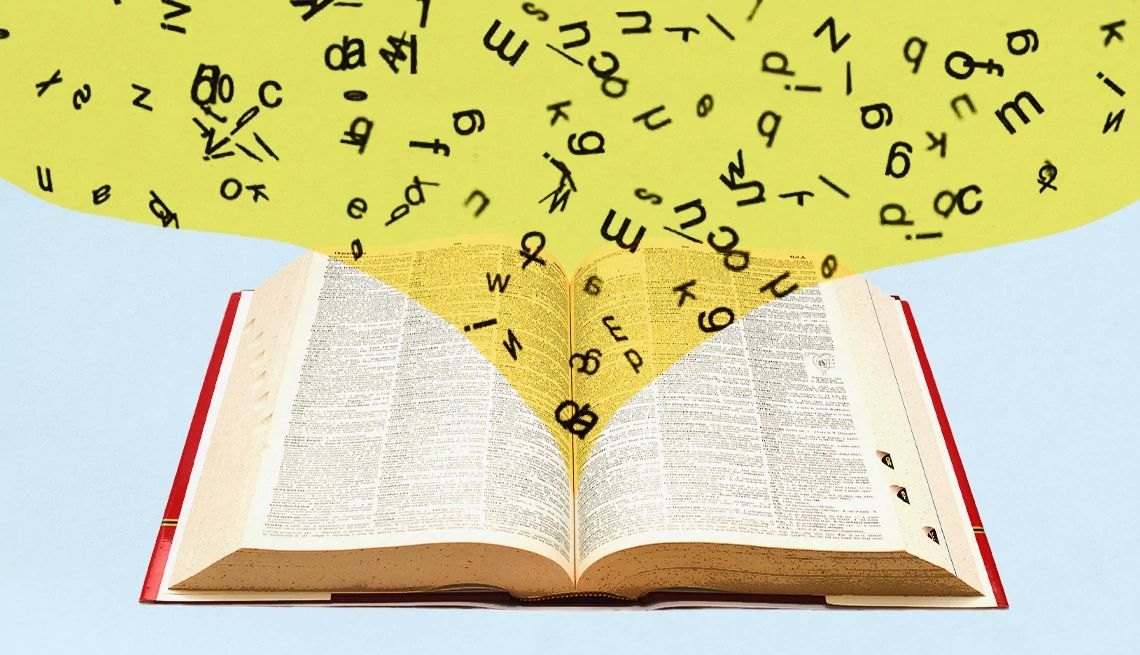AARP Hearing Center


The English language is constantly evolving over time, and never more so than in recent years, as our online presence accelerates the spread of new expressions.
The 60 words and phrases below are among the many that have been recently added to the Cambridge Dictionary (CD), Oxford English Dictionary (OED), Dictionary.com (D), which relies on the Random House Unabridged Dictionary as a source, or Merriam-Webster’s Collegiate Dictionary (MW). Some of these words and phrases appear in more than one dictionary. Some of them you may have used (likechatbot”); others are on the stranger side (see: “no cap” and “6 7”).
6 7, int: “A nonsensical expression connected to a song and a basketball player.” (MW)
41, int: “A nonsense expression used by teens.” (MW)
agentic, adj: “Able to accomplish results with autonomy, used especially in reference to artificial intelligence.” (MW)
air jail, n.: “The activity of lifting a pet animal, usually a dog, into the air and holding them there for a short time to stop or prevent bad behavior.” (CD)
ate (and left no crumbs), v.: “If it is said that someone ate or ate and left no crumbs, they have performed or done something perfectly or impressively, whether that be singing, dancing, or dressing fashionably and looking good, etc. In other words, they’ve done something flawlessly, as well as it could possibly be done.” (MW)
auntie, n: “a term of affection/respect for an older woman.” (MW)
aura, n.: “Cool’ factor; star power; stylish swagger.” (MW)
babygirl, n.: “An attractive male, often a celebrity, who is admired for being cute, sensitive, vulnerable, or stylish.” (D)
baddie, n.: “A confident, stylish, and attractive woman.” (MW)
barbiecore, n.: “An aesthetic or style featuring playful pink outfits, accessories, decor, etc., celebrating and modeled on the wardrobe of the Barbie doll.” (D)
beat-making, n.: “Esp. in the context of hip-hop: the composing or producing of beats.” (OED)
bed rotting, n.: “The practice of spending many hours in bed during the day, often with snacks or an electronic device, as a voluntary retreat from activity or stress.” (D)
bet, int.: “It can express enthusiastic affirmation, agreement, or approval, similar to ‘For sure!’ or ‘Great!’ It can accept a challenge, often humorously, similar to [Try me!’ It can also convey exasperation or disbelief, usually sarcastically, equivalent to ‘Give me a break!’ or ‘You’ve got to be kidding me.’” (MW)
bingo card, n.: “A set of possibilities governed by chance; esp. a notional list of events, utterances, etc., regarded as being probable or expected in a given context or situation. Also in negative constructions, with reference to unexpected events.” (OED)
blep, n: “A case of an animal with its tongue sticking partway out.” (MW)
brain flossing, n.: “A way of relaxing and reducing stress that involves listening through headphones to music and other sounds that have been recorded in such a way that they seem to move around the listener.” (CD)




































































More From AARP
A Guide to Understanding Today's Slang
We deciphered some key phrases to help you understand your grandkids10 Classic Novels to Add to Your Reading List
Check out our list of iconic books from Austen, Woolf, Orwell and more
Understanding Gen Alpha Slang: A Parent's View
Navigating Gen Alpha slang with humor and understanding